Illustrative Image: Call for Expressions of Interest: Transformative Capacity Development Program for CBOs, CSOs, and Coalitions in Zimbabwe 2025–2026
Image Source & Credit: EEAS – European Uninon
Ownership and Usage Policy
Introduction
The Zimbabwe Human Rights NGO Forum and COSPE, with financial support from the European Union, invite Expressions of Interest (EOIs) from eligible Community-Based Organizations (CBOs), Civil Society Organizations (CSOs), and CSO Coalitions across Zimbabwe to participate in a Transformative Capacity Development Program under the broader initiative CS4Zim: Civil Society Actors as Drivers of Transformative Change in Zimbabwe.
This program is specifically designed to strengthen the role of grassroots organizations working with marginalized and vulnerable groups—such as women, youth, children, and Persons with Disabilities (PwDs)—by equipping them with the tools, governance frameworks, and leadership skills necessary to address critical developmental and human rights challenges in their communities.
Participation in this program represents the first stage of a two-step process:
-
Capacity Development Phase – Organizations selected will receive tailored training, mentorship, and institutional strengthening support.
-
Financial Support Phase – Selected organizations will later become eligible to apply for Financial Support to Third Parties (FSTP) through a competitive process. Grants will range between EUR 10,000 and EUR 60,000 depending on the nature and scope of initiatives proposed.
2. Background and Program Overview
The CS4Zim program is founded on the principle that a vibrant civil society sector is essential for sustainable development, social justice, and human rights in Zimbabwe. Through this initiative, approximately 70 organizations will be selected:
-
60% CBOs
-
35% CSOs
-
5% CSO Coalitions
These will be drawn from all 10 provinces of Zimbabwe to ensure national representation and inclusivity.
Special preference will be given to organizations that are:
-
Women-led, youth-led, or PwD-led;
-
Actively serving marginalized or underserved populations;
-
Demonstrating readiness to implement transformative interventions.
The program is unique in that it moves away from the “one-size-fits-all” approach and instead applies a tailored, competency-based model. Interventions will be customized to the organizational maturity level (entry-level, mid-career, senior management, and board representation) to address specific skills gaps. This multi-level strategy promotes:
-
Continuous learning,
-
Mentorship,
-
Peer-to-peer knowledge exchange, and
-
Effective succession planning within the civil society sector.
Core Areas of Support
The Transformative Capacity Development Program will provide training, mentorship, and resources across the following domains:
-
Organizational Development
-
Governance structures, compliance with PVO regulations, strategic planning, financial and human resource management.
-
-
Programmatic Strengthening
-
Designing and implementing impactful projects, monitoring and evaluation systems, and reporting mechanisms.
-
-
Advocacy and Communication
-
Building influence in public discourse, strengthening media relations, and improving community mobilization strategies.
-
-
Resource Mobilization
-
Diversifying funding streams through proposal development, donor engagement, and fundraising strategies.
-
-
Networking and Collaboration
-
Facilitating coalitions, partnerships, and cross-learning opportunities.
-
-
Specialized Thematic Training
-
Topics such as digital transformation, documentation, gender equality, youth empowerment, and social inclusion.
-
Delivery will combine workshops, mentorship, online resources, and peer learning, ensuring that organizations not only build knowledge but also put it into action.
3. Eligibility Criteria
Organizations applying must:
-
Be legally registered as a Private Voluntary Organization (PVO) in Zimbabwe, or provide evidence of active progress toward registration.
-
Demonstrate operational credibility and presence within communities.
-
Have no conflicts of interest that could undermine transparent participation.
4. Selection Criteria
Applications will be assessed by an independent panel of local and regional experts.
| Criteria | Maximum Score |
|---|---|
| Alignment & Justification (relevance to organizational goals, human rights, and community impact) | 20% |
| Capacity Assessment (clarity of gaps and strategies for addressing them) | 20% |
| Team Commitment (participation and application of learning) | 15% |
| Past Performance (quality and relevance of work) | 15% |
| Community Impact (evidence of positive change and collective action) | 15% |
| Program Priorities, Gender & Social Inclusion (commitment to equity and balanced representation) | 15% |
| Total | 100% |
5. Benefits of Participation
Selected organizations will gain:
-
Access to tailored, needs-driven training and mentorship.
-
Enhanced organizational effectiveness, efficiency, and sustainability.
-
Improved program design, delivery, and community impact.
-
Strengthened advocacy and fundraising capacities.
-
Opportunities for networking and future partnerships.
-
Eligibility to apply for FSTP sub-grants in 2026 to implement transformative community initiatives.
6. Application Process
Step 1: Intention to Submit
-
Organizations must submit an Intention to Submit Form by 23 September 2025 via: Google Form Link.
Step 2: Submission of EOI
-
Submit a concise Expression of Interest (max 8 pages) by 1 October 2025 to: consortiumrecruit@gmail.com.
-
Subject line: “EOI – Transformative Capacity Development Program – [Organization’s Name]”.
-
For revised applications following the corrigendum, subject line: “EOI – … – [Organization’s Name] – Resubmission”.
-
Combine all documents into a single PDF.
Required Content:
-
Organizational Profile (legal name, registration, contact person, mission, vision, areas of work, past performance).
-
Rationale for Interest (capacity gaps, challenges, expected contributions to organizational growth).
-
Capacity Assessment (strengths and areas for improvement in governance, finance, programs, advocacy).
-
Team Commitment (leadership and staff engagement in learning and application).
-
Community Action Evidence (collective action and its impact).
Physical submissions may be delivered to:
Zimbabwe Human Rights NGO Forum, 18 Wanganui Road, Meyrick Park, Harare
7. Selection Timeline
| Activity | Date |
|---|---|
| Call for EOI Published | 30 July 2025 |
| Corrigendum Issued | 1 September 2025 |
| Deadline for Questions | 12 September 2025 |
| Online Q&A Session | 16 September 2025 |
| Intention to Submit Form Deadline | 23 September 2025 |
| EOI Submission Deadline | 1 October 2025 |
| Application Review | 2–24 October 2025 |
| Notification of Shortlisted Orgs | 4 November 2025 |
| Written Feedback to All | 7 November 2025 |
| Appeals Close | 21 November 2025 |
| Final Selection Announced | 1 December 2025 |
| Capacity Development Program Duration | Dec 2025 – Dec 2026 |
8. Contact Information
For inquiries, contact: consortiumrecruit@gmail.com (deadline for questions: 12 September 2025).
An online information session will be held on 16 September 2025 via Google Meet (link to be shared). Interested organizations should register their attendance via email.
✅ Conceptual Elaboration:
This call is not just about providing training. It introduces a transformative model of capacity development—meaning organizations will go beyond acquiring technical skills. Instead, they will strengthen governance, leadership, financial resilience, inclusivity, and sustainability in a holistic way. The program aims to cultivate long-term institutional growth, empower marginalized voices, and reinforce civil society as a driver of democratic participation, accountability, and social justice in Zimbabwe.



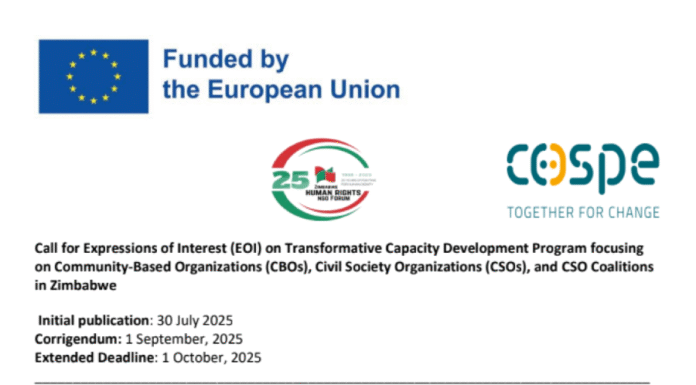


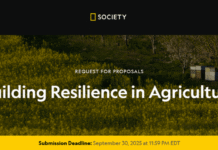
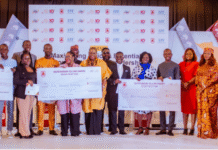
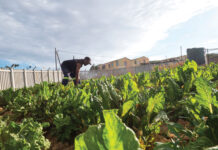
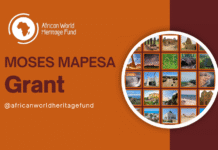






 The African Research (AR) Index is a comprehensive scholarly directory and database focused explicitly on journal publishers that publish and disseminate African research.
The African Research (AR) Index is a comprehensive scholarly directory and database focused explicitly on journal publishers that publish and disseminate African research.

